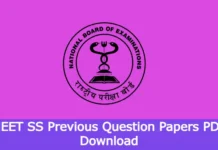On the completion of an MBA, one establishes a solid network and is exposed to new job opportunities. But sometimes, a general management degree may not be sufficient to go deeper into a specific area of interest and acquire enough industry centric skills. That is why there are various well-known courses after MBA that can be pursued to further enhance the learning of the management skills.
But it might keep you wondering why you should pursue a course after your MBA, you should know that it’s one of the most sought-after degrees in the world. This means you’ll have to compete hard to stand out among your peers and succeed with utmost potential. This is where a course can help you. Once you have completed a short-term course after MBA, you have added more cream to your cake. A good course demonstrates the extra effort you’ve put in to be at the top in the industry. That is something that is never forgotten!
Here in this article, we have compiled the top courses after MBA that you can choose from.
ISB’s Certificate Programme in Business Analytics (CBA)
The Advanced Management Programme in Business Analytics (AMPBA) is another name for the ISB Certificate Programme in Business Analytics (CBA). This is a short-term course for mid-career professionals with 2-15 years of experience who have completed an MBA. The total time to complete the course is 15 months.
The major aim of this program is to teach students the skills and techniques they’ll need to analyze past business performance and estimate future business plans. The Indian school of business offers this program.
For this course, you will often be required to attend one of ISB’s two campuses for a 5-day schedule of classroom study. This occurs every alternate month for a period of 12 months and can be scheduled to include a weekend. You are expected to stay on campus during the classroom sessions and attend teaching sessions in the morning and guest lectures, projects, and group work in the evening.
Chartered Financial Analyst (CFA)
This post-MBA short-term course is designed to satisfy the needs of the finance sector and provide you with the necessary knowledge to handle it. Only a bachelor’s degree is required for a CFA course. Another good news is that you can apply for this certification course even if you are in your final year of school.
You will almost certainly be able to find work in investment banking, portfolio management, or equities research with this certification.
If you are a working professional, you can now pursue this programme while continuing to work. All that is required of you for this course is that you devote more than 300 hours to studying for the three levels (CFA).
Ph.D in Management
A Ph.D. in management offered by various IIMs would provide you with a more in-depth understanding of management. It’s an excellent course to take after an MBA, especially for people working in consulting or pursuing a career in academia. This programme lasts 4-5 years, with the third year dedicated completely to research.
The Ph.D. in management will provide you with research opportunities in marketing, finance, economics, and human resources, among other areas. A library with a variety of literature, periodicals, and databases is one of the other perks. Along with this wealth of information, you’d have access to advanced computing facilities, on-campus lodging, fellowship, and research funding!
This training will also help you stand out in your field by enhancing your company management fundamentals and leadership skills. You will be involved in business operations such as monitoring, regulating, leading, planning, and organizing.
Certified in Production and Inventory Management (CPIM)
The APICS CPIM, also known as Certified in Production and Inventory Management, is a globally recognized certification. This accreditation will assist you in establishing yourself in the supply chain section. This course will provide you with a deep grasp and expertise of a company’s production planning and inventory management in worldwide operations.
There are five modules in this certification, with two APICS CPIM exams: Part 1 and Part 2. It will take you 3.5 hours to complete each module.You can also study this course at your leisure because the whole course materials are available online as well.
Post Graduate Diploma in Computer Applications (PGDCA)
The Postgraduate Diploma in Computer Applications is an ideal course for those who want to continue their study after completing an MBA. The PGDCA course focuses primarily on the study of information technology and the underlying knowledge of computer applications. The students get to learn about programming languages and software applications in this course.
You can enroll in this programme to gain a complex mix of technical and management abilities. After an MBA, a PGDCA will open up a wealth of prospects in the IT and software industries.
This course is taught using programming languages like Java, C, and C Packages after you have completed your MBA. They also handle information using operating systems such as MS Office-Web Design, TALLY, and Oracle-VB. The good news is that you can pick between a one-year full-time or part-time course with no prior experience or a one-year part-time study.
Certification in Financial Risk Management (FRM)
This course is appropriate for people interested in capital markets after completing an MBA. It also covers banking, financial markets, financial services, and financial literacy, among other areas.
Certification in Risk Management Assurance (CRMA)
The Institute of Internal Auditors (IIA) offers a short-term course for risk managers after completing an MBA. This certification will help you demonstrate your competence to ensure fundamental business processes in risk management and governance once you have obtained it.
However, if you decide to pursue this course, you will need to put in a lot of effort because it does not have a set syllabus. To be considered for the position, you must have a character certificate signed by an authorized person, as well as a graduate degree and work experience in the financial sector. If you want to work in credit risk management, risk assurance, quality assurance, auditing, and other related fields, this exam is for you.
We believe that these top courses after MBA courses will assist you in gaining a deeper understanding of your chosen field. We’re confident that your qualifications and experience will set you apart from the competition.
KEY HIGHLIGHTS









